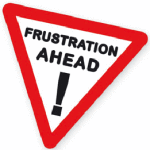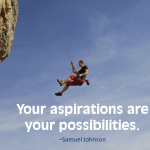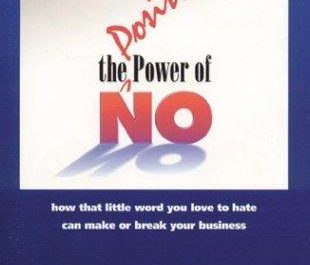 My mentor, Jut Meininger, spent the last three years of his life attempting to get me to see the futility of having expectations. “Give up your expectations,” Jut would tell me from his Knower/Judger, “and you will completely eliminate frustration.” (I’ve been known to be very frustrated on and off during my life…many of you may have witnessed this!) My response from my K/J was, “How does someone with the goal-oriented K/J set of rules actually accomplish anything? Don’t we have to have expectations in order to succeed?” Jut’s been gone six years now, and his wisdom is finally sinking in. Read more
My mentor, Jut Meininger, spent the last three years of his life attempting to get me to see the futility of having expectations. “Give up your expectations,” Jut would tell me from his Knower/Judger, “and you will completely eliminate frustration.” (I’ve been known to be very frustrated on and off during my life…many of you may have witnessed this!) My response from my K/J was, “How does someone with the goal-oriented K/J set of rules actually accomplish anything? Don’t we have to have expectations in order to succeed?” Jut’s been gone six years now, and his wisdom is finally sinking in. Read more
About a half dozen of us met telephonically every Tuesday night to learn from Jut and coach each other in using his models.
A story from my childhood resonated with the group. When I was 14 or 15 months old, my family lived in a house with hardwood floors. Between two rooms there was an oak door saddle (the kind that sits about a half an inch above floor level). Since I was crawling around on my hands and knees, every time I passed through the doorway, my knees would bang the door saddle. And it hurt.
One evening, my father, sitting in his easy chair reading the paper, saw me come chugging from the dining room toward the living room. I approached that door saddle, stood up, took two steps, and went right back down on my knees to go to my father. The frustration caused by banging my knees on the door saddle had motivated me to design a workaround for the problem. I actually took my first steps with no parental assistance. After I had shared this story, the rest of the group took to referring to a motivating frustration in terms of “hurt knees.”
So all frustration is not bad. It’s the frustration of having unmet expectations that Jut wanted us to free ourselves from.
An expectation is a K/J “should.” “He should pick up his clothes.” “He should take the garbage out.” “She should love me more.” Notice that all of these “shoulds,” these expectations, depend on someone else’s actions. And so they create frustration over which we have no personal control. This type of frustration can create all sorts of relationship-damaging situations, thereby contributing negatively to the environment.
But what of the child who hurt his knees as he stumbles across the door saddle? Or of the piano student who struggles to learn a particularly difficult piece? Certainly either of these situations could be construed as a frustration. I’d rather describe each as an aspiration. And here’s the difference:
My definition of an aspiration is not derived from the K/J state. It does not come from judgment. It does not come from being frustrated with someone else’s behaviors or accomplishments, or any external requirement. It comes from the Learner/Researcher state, where it’s simply something I want and am capable of acquiring.
Let’s say I want to finish my PhD. That’s an aspiration. I want to do it, and it’s certainly within my ability to do so. I simply have to set aside the money, time, and stick-to-itiveness to push through. After years of hesitation and offering up a shopping list of excuses (can’t find the money, the kid got sick, the school won’t let me in…all, you’ll note, expectations), then I will likely become frustrated. Why? Because the world has not cooperated as I expected it to. The stars have not aligned.
Expectation and aspiration is yet another pairing of words commonly used as synonyms that really do not mean the same thing. I’ve written about others.
When I have to do something, it’s to satisfy some K/J rule I have.
When I want to do something, it’s simply from my L/R heart.
When I’m satisified, I’ve met some K/J expectation (hit the sales goal, bought the Mercedes, sunk the 15-foot putt).
When I’m happy, the above goals are meaningless and I’m just not flappable.
When I have an expectation, it’s from some external driver (Dad used to tell me “never give up”).
When I have an aspiration, it’s just for me…to keep or make me happy, because it’s something I want to do.
The cool part about this is that to want something enough to aspire to it and make oneself happy is a choice.
To have to do something with an expectation that when it’s successful I will be satisfied is usually a rule I got from somewhere…my mom, my company, my school.
Think of the biggest successes and events in your life. Were they accomplished by keeping your nose to the grindstone, carrot on a stick right in front of you, pushing through frustration to a feeling of great satisfaction at the end?
Or were they things that would not be denied, that you wanted to accomplish so badly that the end result was sheer joy?
Let’s say you awaken to the possibility that you’re on a treadmill of expectations. And you’re not getting what you expect. And you’re frustrated. And you don’t work well in that state and it’s not what you aspire to.
Remember Jut’s words: “Give up your expectations, and you will completely eliminate frustration.” Try it next time. What if that 15-foot putt wasn’t that important?
Don’t misinterpret all this…both of these states can benefit us. But it’s my belief that letting go of expectations and focusing on aspirations is a huge contributor to quality of life in the long run.



